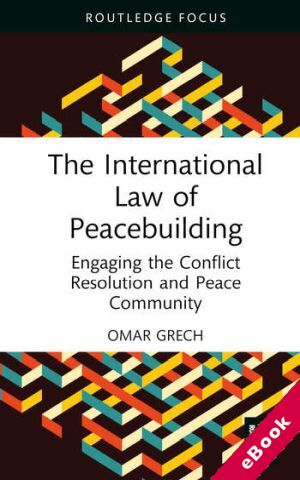
The device(s) you use to access the eBook content must be authorized with an Adobe ID before you download the product otherwise it will fail to register correctly.
For further information see https://www.wildy.com/ebook-formats
Once the order is confirmed an automated e-mail will be sent to you to allow you to download the eBook.
All eBooks are supplied firm sale and cannot be returned. If you believe there is a fault with your eBook then contact us on ebooks@wildy.com and we will help in resolving the issue. This does not affect your statutory rights.
This book contributes to the debate on the international law of post-conflict peacebuilding, and suggests a need for closer connections between practitioners and academics.
The work argues that significant benefits accrue when lawyers and conflict/peace practitioners, and scholars work with each other to develop a normative framework for building peace. It also attempts to bridge the divisions that exist between lawyers and the conflict resolution/peace community in the specific context of the international law of post-conflict peacebuilding. After introducing the key concepts of the international law of peacebuilding, the book explores aspects of the relationship between lawyers and peacebuilding practitioners and offers ideas about how this relationship might be improved. It then proceeds to identify some principles and processes developed by conflict resolution specialists that may inform and influence discrete parts of the international law of peacebuilding. The work concludes by identifying sites and ways in which international lawyers and conflict resolution/peace specialists may engage with each other to shape this branch of international law.
This book will be of much interest to students of peace and conflict studies, international law and International Relations.